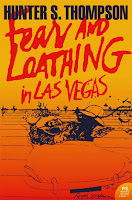I can't think of any book that could be called the "Great American Novel." The U.S. is so big, it's easier to find "Great Novels" state by state. For Texas, we have a strong nominee in Philipp Meyer's recently-released novel The Son:
In 1859, Eli McCullough, the 13-year-old son of Texas pioneers, is captured in a brutal Comanche raid on his family's homestead. First taken as a slave along with his less intrepid brother, Eli assimilates himself into Comanche culture, learning their arts of riding, hunting, and total warfare. When the tribe succumbs to waves of disease and settlers, Eli's only option is a return to Texas, where his acquired thirsts for freedom and self-determination set a course for his family's inexorable rise through the industries of cattle and oil. The Son is Philipp Meyer's epic tale of more than 150 years of money, family, and power, told through the memories of three unforgettable narrators: Eli, now 100 and known simply as "the Colonel"; Eli's son Peter, called "the great disappointment" for his failure to meet the family’s vision of itself; and Eli's great-granddaughter Jeanne Anne, who struggles to maintain the McCullough empire in the economic frontier of modern Texas.Cattle, oil, and their environmental costs are big themes in the book. So perhaps a fitting news story is this May 17th article from CNN, "Texas sues BP, Halliburton, others over oil spill:"
Texas on Friday became the latest state to sue BP, Halliburton and others tied to the 2010 Deepwater Horizon oil spill, alleging the parties "engaged in willful and wanton misconduct" and seeking penalties and damages "to the fullest extent allowed by law." The lawsuit was filed in U.S. District Court in Beaumont, more than three years after one of the worst oil spills in American history.























